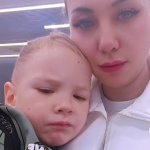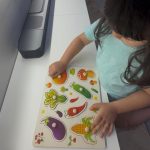Maintaining Mobility and Spinal Health in Autism
Every child with autism is unique, but as some studies have shown, they are at a higher risk of issues with fine and gross motor skills and delays in their development. These problems can range from general difficulties with balance and coordination to more specific ones, such as walking on tiptoes. In any case, parents can easily notice that their child has trouble performing simple movements—such as running or jumping.
Reduced mobility in autism is often linked to low muscle tone and underdeveloped motor skills. Such a child will likely require the help of a physiotherapist and other specialists, but additional assistance can be provided through other means—specifically, coordination can be greatly improved with activities like dance and swimming, with the latter also having a calming effect, helping the sensory system avoid overload.
A child’s physical activity is largely dependent on the health of their spine. Just like with bones, children with autism may experience problems with their spine, which could negatively impact the development of motor skills and posture. If a child has a habit of slouching or sitting in uncomfortable positions, it can eventually lead to discomfort or even more serious musculoskeletal issues. Additionally, tendencies to sit for long periods or engage in repetitive movements may lead to muscle weakness or overstrain in certain muscles.
To maintain spinal health, parents should provide ergonomic furniture for the child and ensure that they regularly take breaks for stretching exercises and walking around during homework. Regular check-ups with a chiropractor or physiotherapist can also prevent complications.
Prevention and Correction Methods for Spinal Health
There are numerous options for prevention and correction that can benefit a child with autism’s spinal health:
- Physiotherapy involves exercises to enhance muscle strength, coordination, and flexibility.
- Occupational therapy focuses on improving daily functional skills through tailored interventions.
- Speech therapy aims to improve communication and language skills, but it often indirectly supports the ability to engage in physical interactions.
- Chiropractic care involves spinal adjustments to improve movement and alleviate discomfort.
- Surgical methods are typically a last resort, although they are becoming more refined and less invasive, yielding better results with shorter recovery times.
- Alternative treatments such as yoga or aquatic therapy can provide gentle physical impact in a soothing environment.
A child should undergo an examination if they often complain of back pain, have difficulty performing physical activities, or habitually walk on tiptoes or heels. While discomfort may resolve on its own, it could also signal structural issues with the spine. Minor pain might be a result of rapid growth during adolescence or engaging in unfamiliar activities. However, when problems become persistent and symptoms such as numbness, tingling, or significant postural changes occur, it’s important to consult a doctor. Early intervention is crucial for the successful correction of unfavorable changes.
Parents can also play a vital role by creating a supportive home environment that positively impacts mobility and spinal health. Understanding mobility issues in children with autism and addressing them requires patience, empathy, and sometimes creativity.
For example, paying attention to posture and ensuring the body is aligned properly—whether at the dining table or during homework—is crucial. Physical activities should be tailored to the child’s abilities and should bring them joy. Shared outdoor walks or bike rides can be especially beneficial, both for physical health and socialization. It’s also important to consider that mental and physical health are closely connected; creating a calming and supportive environment at home can significantly benefit a child’s emotional well-being and spinal health.
The Role of Cellular Therapy in Spinal Health
Such efforts will undoubtedly have a positive effect on the spine and overall well-being of a child with autism. However, they are insufficient to eliminate the root cause of the issues, which is the disorder itself. The most effective and quickest way to address autism and its symptoms is through cellular therapy—an innovative, safe, and natural method of correction.
This approach is based on the principle that stem cells can transform into any other type of cell, replacing damaged ones with healthy counterparts. For transplantation, the patient’s own biological material is used, which prevents immune reactions and, consequently, rejection. The procedure leads to the normalization of brain and nervous system function, stabilizes behavior, accelerates development, and significantly reduces or even eliminates autism symptoms. The results can be seen shortly after the procedure and last for an extended period—often for life—making supplementary correction methods more effective.
Recently developed, cellular therapy is far more reliable than traditional treatments. Initially considered experimental, it has now gained widespread recognition and is becoming the primary approach for addressing autism spectrum disorders and their symptoms. Its effectiveness is demonstrated by its use in leading clinics worldwide, including the Mardaleishvili Medical Center. The highly skilled doctors at this facility have extensive experience with stem cell transplants, supported by state-of-the-art equipment and carefully designed therapeutic protocols, which contribute to achieving the best possible therapeutic results. The level of care at the clinic meets the highest standards, and the treatment is more affordable than in countries with highly developed healthcare systems. Additionally, the clinic offers comprehensive support with travel planning and addressing various concerns, such as accommodation for the rehabilitation period, which lasts for a short time.
Cellular therapy offers the chance to live an active and fulfilling life!
Autism Treatment Center Videos
Autism treatment with own stem cells
Cord blood association congress
International Quality Crown
Autism Treatment Reviews
Autism treatment with own stem cells
The story of Alessandro (6 years old)
Autism Patient Testimonial - Stem Cell Treatment
Clients Testimonials

Lidiya — Elina’s mother Read More

Anna – Sasha’s mother Read More

Amirkhon’s father — Tokhir Read More

Dilana’s mother Read More

Irina and Stefan – Ilya’s parents Read More












